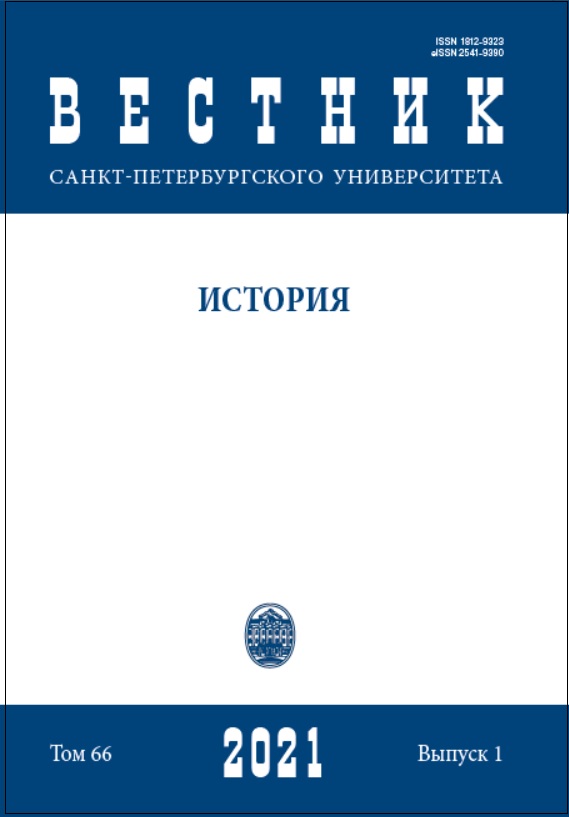Paradoxes and Realities of the Iranian Politics of the First Romanovs
DOI:
https://doi.org/10.21638/spbu02.2021.101Abstract
The paper based on materials from the Funds 77 "Relations between Russia and Persia" of the Russian State Archive of Ancient Act describes numerous episodes related to robberies and other conflicts of Russian and Iranian subjects in the context of the common bilateral friendly policy of their monarchs. Almost every letter from Shah Sefi I (1629-1642) which were addressed to Mikhail Fedorovich contained assurances of a friendly attitude ("loving friendship"). The strategic line chosen by the two monarchs, aimed at preserving and developing trade contacts between the two states, was noticeably limited to tactical actions motivated by the personal benefit of Russian and, to a greater extent, Iranian officials, representatives of the regional administration. The uprisings on the periphery of the Safavid state, in particular in Gilan, were accompanied by numerous cases of robbery of the czar's subjects. The Cossack raids, which intensified in the Caspian in view of Moscow's ban on "going" to the Black Sea coast in the early 1630s, were already one of the main obstacles to Iranian trade. At the same time, on the example of the embassy of the merchant (in Russian – kupchina, tsar’s or shakh’s trade representative) Khvaji Rakhmat (1630-1631), on the attempts of the Astrakhan governors to stop the robberies of the Cossacks on the Caspian coast, as well as on the actions of the shah to compensate for the property robbed in Lakhidjan, it is shown that the two sides intend to correspond to the "loving friendship", albeit with varying degrees of success.
Keywords:
Russian-Iranian relations of the 17th century, Mikhail Fedorovich, Sefi I, kupchina, A.I. Romanchukov, Shemakha, Gilyan, Cossacks
Downloads
References
Downloads
Published
How to Cite
Issue
Section
License
Articles of "Vestnik of Saint Petersburg University. History" are open access distributed under the terms of the License Agreement with Saint Petersburg State University, which permits to the authors unrestricted distribution and self-archiving free of charge.





